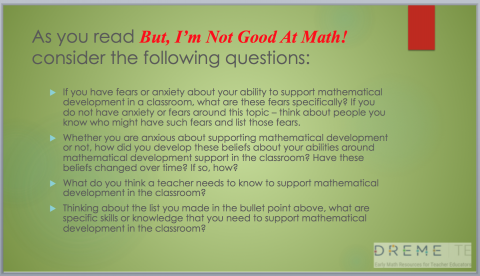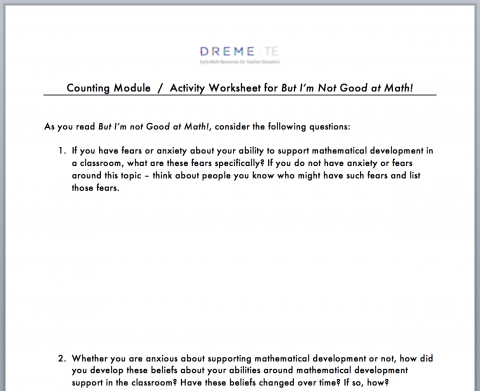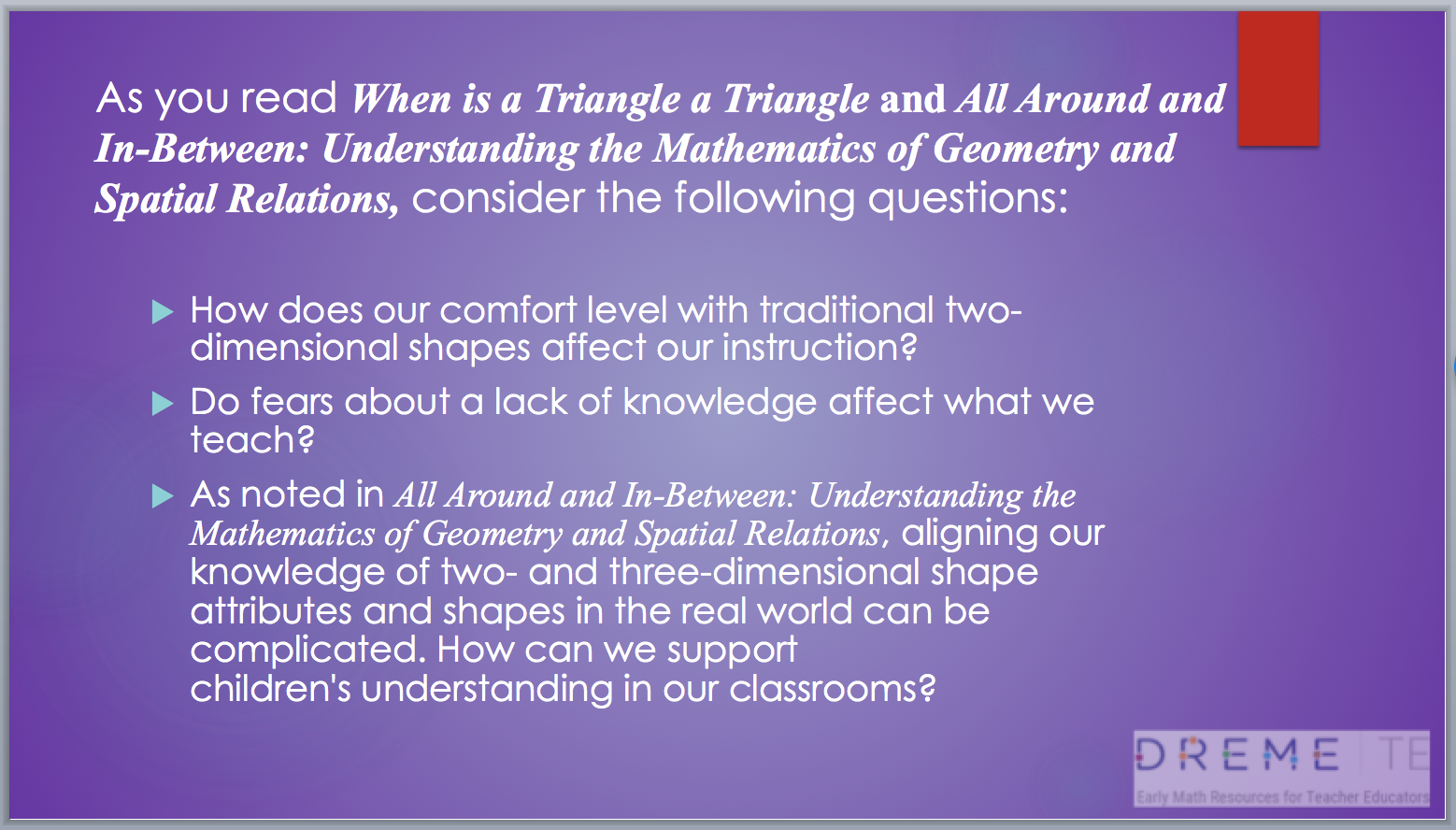This activity addresses beliefs and attitudes about teachers' own mathematical skills and their effects on classroom teaching. Beliefs and attitudes directly affect how teachers support mathematical development in their classrooms. These beliefs and attitudes include fear and anxiety around their own competence in mathematics and perceived lack of knowledge about mathematical development and how to support it, and beliefs about how children learn mathematics and the teacher's role in mathematics instruction in the early childhood classroom.
Activity for Teacher Educators
This activity begins with participants reading the vignette But, I’m Not Good At Math! This can be assigned as homework prior to the session, or read during the session before starting the activity. This activity can be done with or without the accompanying worksheet and PowerPoint slide. Participants should be provided with the questions before reading But, I’m Not Good At Math! vignette. Ask them to think about the questions as they read.
Table talk
Ask your students to begin talking about the first two questions. Helping participants understand exactly what they might be fearful about can help them set a course for conquering these fears (e.g., gaining more knowledge about developmental progressions, gaining accurate vocabulary, or realizing that they already know how to do most or all of the mathematics that their children are learning). The rest of the questions 3 and 4 can help teachers identify what they might need in order to support early mathematical development.
Group share
Call on groups to share their answers with the class. Participants will be on a wide spectrum of beliefs about their ability to support mathematical development. Anxious participants can help non-anxious ones understand more about such fears, and participants who have been successful in supporting mathematical development in their own classrooms can be a good source of peer support and modeling.




